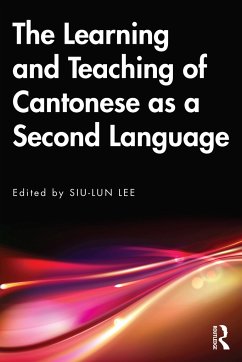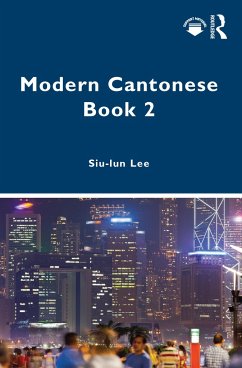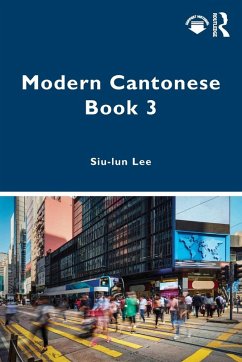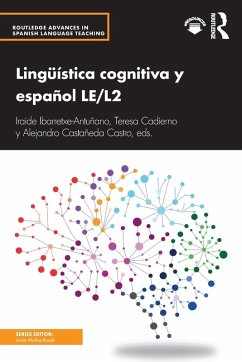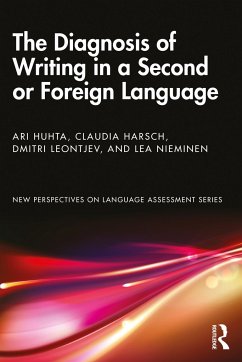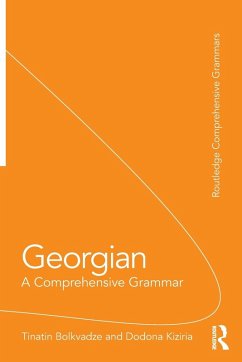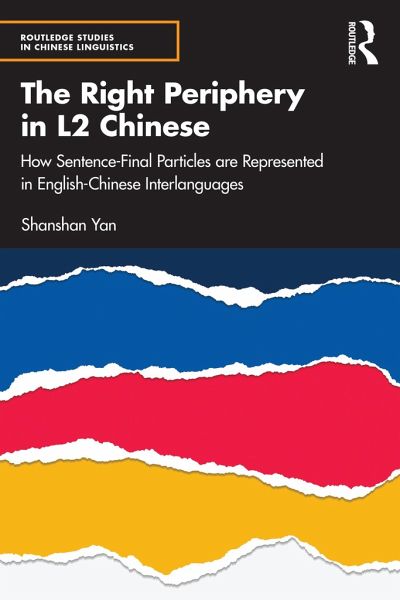
The Right Periphery in L2 Chinese
How Sentence-Final Particles are Represented in English-Chinese Interlanguages
Versandkostenfrei!
Versandfertig in 6-10 Tagen
41,99 €
inkl. MwSt.
Weitere Ausgaben:

PAYBACK Punkte
21 °P sammeln!
The Right Periphery in L2 Chinese is among the first books to try to incorporate both advanced linguistic and acquisition perspectives to show how eight sentence-final particles are represented in English-speaking learners' L2 Chinese.This book will inform researchers of the general construction of the right periphery in L2 grammars. Drawing on up-to-date theoretical frameworks and findings from advanced empirical studies, it sketches the general picture of the periphery that these particles occupy in English-Chinese interlanguages. Readers will grasp the problems and difficulties, and particu...
The Right Periphery in L2 Chinese is among the first books to try to incorporate both advanced linguistic and acquisition perspectives to show how eight sentence-final particles are represented in English-speaking learners' L2 Chinese.
This book will inform researchers of the general construction of the right periphery in L2 grammars. Drawing on up-to-date theoretical frameworks and findings from advanced empirical studies, it sketches the general picture of the periphery that these particles occupy in English-Chinese interlanguages. Readers will grasp the problems and difficulties, and particularly the ambiguities, which learners of Chinese must grapple with in the process of acquiring sentence-final particles. Possible influential factors underlying the acquisition process are explicitly discussed as well. Researchers will also find insights in the advanced methodologies and statistics that are used to study Chinese.
The book will be illuminating for researchers interested in SLA, linguists of generative theories, and educators teaching Chinese as a second/foreign language.
This book will inform researchers of the general construction of the right periphery in L2 grammars. Drawing on up-to-date theoretical frameworks and findings from advanced empirical studies, it sketches the general picture of the periphery that these particles occupy in English-Chinese interlanguages. Readers will grasp the problems and difficulties, and particularly the ambiguities, which learners of Chinese must grapple with in the process of acquiring sentence-final particles. Possible influential factors underlying the acquisition process are explicitly discussed as well. Researchers will also find insights in the advanced methodologies and statistics that are used to study Chinese.
The book will be illuminating for researchers interested in SLA, linguists of generative theories, and educators teaching Chinese as a second/foreign language.





